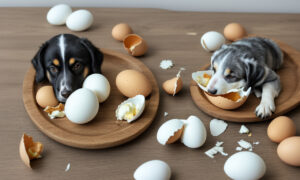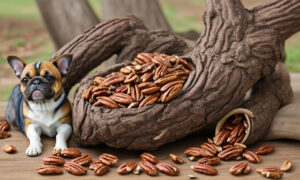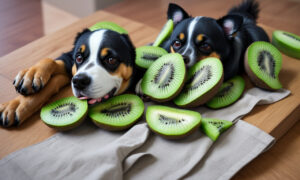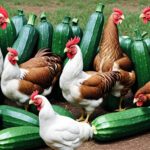Popcorn has become synonymous with movie nights and casual snacking, filling homes with its tantalizing aroma and the sound of kernels popping. But while we enjoy this delectable treat, it’s natural to wonder if our furry friends can partake in this snack as well. So, can dogs have popcorn? When it comes to sharing your popcorn with your dog, there are several dos and don’ts every pet owner should be aware of.
Understanding the implications of feeding your dog popcorn requires us to look at both the potential benefits and the risks associated with this popular snack. This article will delve deep into the queries surrounding dogs and popcorn, providing comprehensive insights from what popcorn types are safe to the associated health considerations.
Before we share that bowl of popped kernels with our pups, let’s uncover the surprising dos and don’ts of giving popcorn to dogs, ensuring we are mindful of our pet’s health and happiness.
Popcorn for Dogs: Nutritional Facts and Myth Busting
Popcorn, when stripped of all its usual human-friendly add-ons like butter, salt, and other flavorings, is simply a whole grain. It consists of carbohydrates, trace amounts of vitamins and minerals, and a modest amount of fiber and protein. Let’s look at how this simple snack fits into a dog’s diet.
The Nutritional Profile of Plain Popcorn
- Carbohydrates: Provide energy for your dog, but should be fed in moderation.
- Fiber: Helps with digestive health but is only beneficial in small amounts.
- Protein: An essential nutrient for dogs, but popcorn should not be a primary protein source.
- Vitamins and Minerals: Only present in trace amounts in popcorn.
Debunking Myths About Popcorn and Dogs
There are several myths regarding dogs and popcorn that need to be addressed:
- Myth 1: “Popcorn is completely harmless for dogs”. Reality: Plain, air-popped popcorn in small amounts can be a relatively safe treat; however, additives often found in popcorn can pose risks.
- Myth 2: “Popcorn is a good replacement for dog treats”. Reality: Popcorn should never replace specially formulated dog treats that contain the nutrients dogs need.
- Myth 3: “All dogs can eat popcorn without any issues”. Reality: Individual dogs may react differently to popcorn, and any food outside their regular diet can potentially cause gastrointestinal upset.
Health Benefits and Risks of Popcorn for Dogs
When considering adding popcorn to your dog’s snack list, it’s imperative to weigh the potential health benefits against the risks.
Potential Health Benefits of Plain Popcorn for Dogs
- Fiber: Popcorn contains dietary fiber, which can support a dog’s digestive system in moderation.
- Energy: As a carbohydrate, popcorn can provide a quick energy boost.
Recognizing the Risks and Dangers
- Choking Hazard: Unpopped kernels can be a choking hazard or cause dental problems for dogs.
- Additives: Butter, salt, and other flavorings commonly added to popcorn can lead to obesity and other health issues in dogs.
- Gastrointestinal Upset: Dogs with sensitive stomachs may not handle even plain popcorn well.
How to Safely Share Popcorn with Your Dog
If you’ve decided to treat your dog to this snack, following specific guidelines is crucial for their health and safety.
Tips for Offering Popcorn to Your Dog
- Always choose air-popped popcorn without additives.
- Remove all unpopped kernels and hard bits to prevent choking.
- **Limit the serving size **to avoid unnecessary calorie intake.
Creating Dog-Friendly Popcorn Recipes
Consider making dog-friendly popcorn without the unnecessary extras that are harmful to pups. Here’s a simple recipe to try:
- Air-pop your popcorn without oil or butter.
- Let it cool completely to avoid burning your dog’s mouth.
- Serve a small portion as a special treat, not a meal replacement.
Unsafe Popcorn Varieties and Toppings for Dogs
Steering clear of certain popcorn varieties and toppings is as important as knowing which ones are safe.
Types of Popcorn to Avoid
- Microwave Popcorn: Often contains harmful chemicals and too much salt and flavor additives.
- Caramel Popcorn: High sugar content can cause dental and weight problems.
- Cheese-flavored Popcorn: Excessive fats and dairy can be problematic for dogs.
Toppings That Are a Big No for Dogs
- Butter and Oils: Can lead to obesity and pancreatitis.
- Salt: Excessive salt intake can lead to sodium ion poisoning.
- Chocolate or Candy Coatings: Chocolate is toxic to dogs, and candy is too high in sugar.
Popcorn Alternatives: Healthy Treats for Your Pup
If you’re looking for healthier and safer treat options for your dog, consider these dog-friendly snacks:
- Carrots: Crunchy and full of vitamins.
- Apples: Fibrous and sweet but remove the seeds and core.
- Blueberries: Antioxidant-rich and a good source of vitamins.
Regular Diet and Treat Balance for Your Dog
As with any treats, it’s essential to maintain a balance with your dog’s regular diet.
Moderation Is Key
- Treats should only make up a small percentage of a dog’s total daily intake.
- Monitor your dog’s weight and health to ensure treats are not leading to excess weight gain or nutritional imbalances.
Understanding Your Dog’s Dietary Needs
- Each dog’s dietary needs vary based on breed, size, age, and health.
- Consult a veterinarian to determine the most balanced diet for your pet.
Canine Health Checks Before Introducing New Foods
Before introducing any new food, including popcorn, to your dog’s diet, consider these steps:
- Check with your vet to ensure the snack is safe for your dog, especially if they have health issues.
- Introduce any new food gradually to monitor for any allergic reactions or digestive issues.
Conclusion: Is Popcorn a Good Treat for Dogs?
In conclusion, while dogs can have a small amount of plain, air-popped popcorn as an occasional treat, it’s vital to consider the potential risks and to ensure it remains a minimal part of their diet. This treat is neither a nutritional necessity nor should it be a regular part of a dog’s diet. When it comes to treating your furry friend, always prioritize their health and choose safe, nutritious options vetted by a professional. Best family car
Ultimately, your pet’s health and well-being are the most important factors when deciding on treats like popcorn. Remember these surprising dos and don’ts and choose wisely. Your pup will be just as happy with a healthy treat as with a potentially risky one, and you’ll have the peace of mind that comes with knowing you’re providing the best care for your beloved companion.







